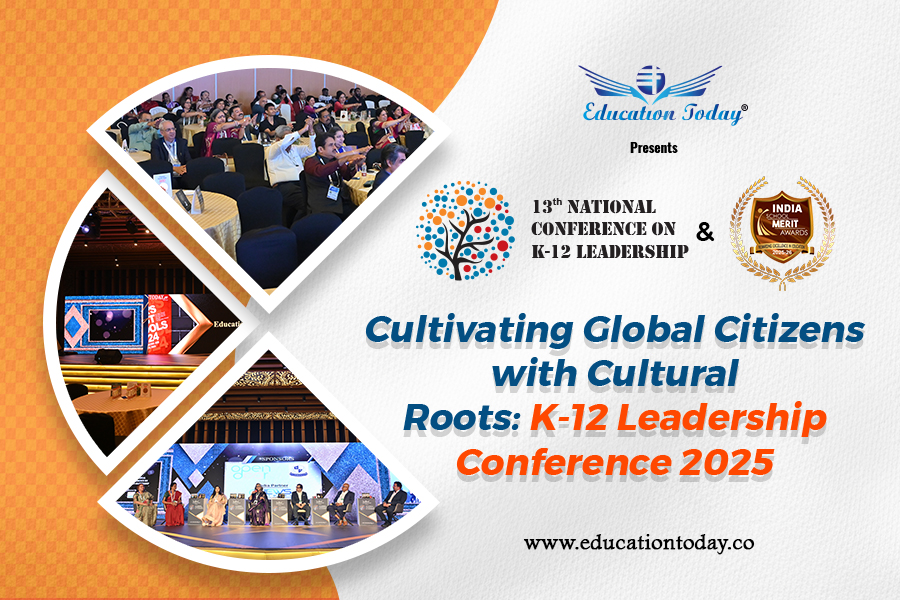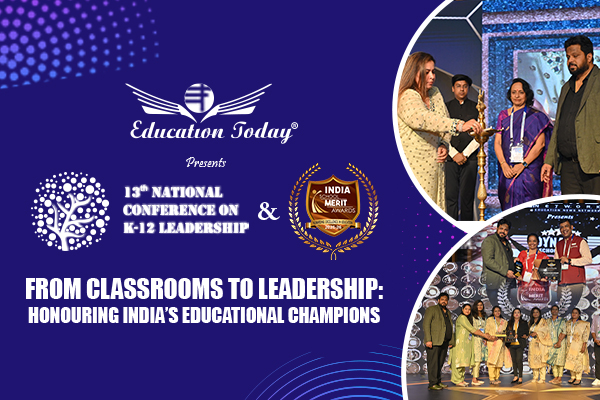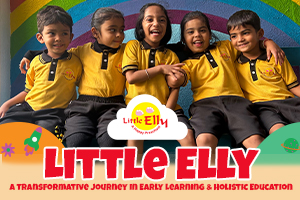EducationToday’s 2024 Educator's Summit Mumbai Redefines the Future of K-12 Learning in India
Imagine a classroom where curiosity leads, technology follows, and learning knows no bounds. No longer confined to chalkboards and textbooks, today’s education demands creativity, agility, and bold thinking. The real question isn’t whether we need to transform education—it’s how fast we can adapt.
This urgency echoed through the corridors of The Lalit, Mumbai, on October 4, 2024, as some of the brightest minds in Indian K-12 education came together—not just to celebrate excellence but to ignite change. More than just an event, the summit was a spark: a gathering of trailblazing educators, visionary school leaders, and thought-provoking conversations that challenged conventional norms and dared to reimagine learning.
With a spotlight on innovation, the discussions dove into what makes education future-ready, from integrating cutting-edge technologies to cultivating environments that empower teachers and learners. It was a space where ideas collided, perspectives shifted, and a new narrative took shape.
Complementing these dynamic exchanges was an inspiring awards segment, applauding success and honoring those who are rewriting the story of education in India—one bold idea at a time.
This wasn’t just a summit. It was a movement. And the future of education? It’s already knocking.
A Deep Dive into the Shifting K-12 Learning Paradigm
One of the summit's most thought-provoking moments was the panel discussion on "The Shift in the K-12 Learning Paradigm: Blended, Flipped, and Experiential Learning." Chaired by Mrs. Kalyani Patnaik, Principal of Hiranandani Foundation School, this session brought together an esteemed panel of educators to explore the evolving landscape of modern education.
The panelists—Dr. Kavita Aggarwal, Ms. Manju Surendran, Ms. Prachi Ranadive, Mr. Kaisar Dopaishi, Ms. Priya Anand, and Ms. Vandana Arora—delivered insightful perspectives on how blended learning, flipped classrooms, and experiential learning are fundamentally changing the way we approach education. They discussed how these innovative teaching methodologies improve student engagement, increase academic performance, and foster critical skills necessary for success in the real world.
Key Insights from the Panelists
Mrs. Kalyani Patnaik started the discussion by introducing the concept of blended learning, a hybrid approach that combines face-to-face and digital instruction. In the post-COVID era, this model has proven essential for personalizing education. By leveraging digital tools alongside traditional teaching, blended learning provides students greater flexibility while ensuring no learner is left behind. Mrs. Patnaik emphasized the need for educators to adapt to this new paradigm, where technology is seamlessly integrated to create an accessible and customized learning environment.
The conversation then transitioned to flipped learning, focusing on active learning rather than rote memorization. Mrs. Patnaik noted that flipped classrooms allow students to learn new content at home through pre-recorded videos or interactive online resources. This enables class time devoted to deeper discussions, collaborative activities, and problem-solving, which are more engaging and help solidify understanding.
Finally, Mrs. Patnaik underscored the significance of experiential learning, where students interact directly with the learning process through hands-on activities and real-world applications. By engaging with their environment, students discover their strengths and take ownership of their education, developing skills that will be crucial in their personal and professional lives.
Ms. Priya Anand, Head of School at Mount Litera School International, Mumbai, emphasized the positive outcomes of experiential learning. She mentioned that feedback from students and educators has been overwhelmingly positive, with students gaining a deeper conceptual understanding of subjects. Additionally, experiential learning promotes critical thinking, teamwork, and collaboration, all essential skills for preparing students for real-world challenges. Ms. Anand noted that this approach helps students see the relevance of their studies beyond the classroom.
Ms. Vandana Arora from Nahar International School highlighted one of the key challenges in adopting these innovative methods—teacher readiness. While educators are increasingly aware of new technologies and teaching methodologies, many are still adapting. Ms. Arora pointed out that the challenge lies in unlearning traditional teaching methods and embracing flexible, student-centered approaches. Teachers must have the necessary training and support to navigate this transformation.
Mr. Kaisar Dopaishi, Head of School at Podar ORT International School, shared his thoughts on personalized learning, which tailors education to individual students' strengths, weaknesses, and interests. Mr. Dopaishi explained that customized learning allows students to progress at their own pace, which helps to increase engagement and motivation. This approach leads to more invested learners, resulting in improved academic outcomes.
Ms. Prachi Ranadive, Principal & CEO of Shishuvan School, discussed the importance of teacher training to implement blended learning successfully. She suggested that parent awareness initiatives should follow comprehensive teacher training programs. Teachers must be equipped with the skills to integrate technology into their lessons meaningfully, and parents need to understand the benefits and potential drawbacks of screen time. Ms. Ranadive also emphasized the importance of using technology constructively to ensure that screen time enhances learning rather than becoming a distraction.
Ms. Manju Surendran, Director of Academics at Fravashi International Academy, highlighted the need for effective planning in flipped classrooms. She stressed that teachers must provide clear instructions and resources that cater to different learning styles. By giving explicit learning objectives and clear guidance, educators can ensure that flipped lessons are impactful and lead to improved outcomes for students.
The Road Ahead: Empowering Educators and Students
The summit provided a critical platform for educators to engage in meaningful dialogue about the future of education. The discussions on blended learning, flipped classrooms, and experiential learning underscored the transformative potential of these approaches in shaping a more engaging, student-centered educational system.
The key takeaway from the summit was the emphasis on students' and teachers' adaptability to evolving educational methodologies. As technology continues to play a central role in modern education, teachers must be equipped with the skills to implement innovative teaching practices effectively. This requires continuous upskilling, support, and collaboration among educators, students, and parents.
The summit also highlighted that personalized learning is a promising trend that can address the unique needs of individual students, driving higher engagement and academic success. The panelists collectively agreed that teacher training, parent involvement, and effective use of technology are essential components for successfully integrating these new methodologies into everyday classroom practices.
As India moves forward in its educational journey, events like the October 4 summit play an essential role in promoting collaboration, knowledge sharing, and the adoption of innovative teaching methods that will define the future of K -12 education. The summit reinforced that by embracing change and providing educators with the tools they need, we can create a future-ready education system that prepares students for the challenges of tomorrow.






